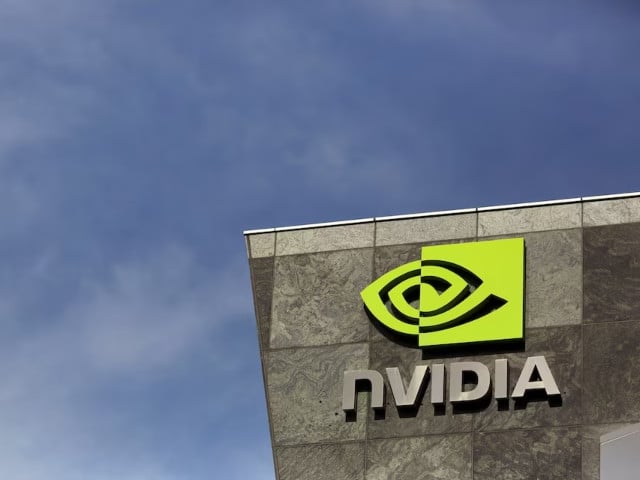
Nvidia (NVDA.O), became the world’s most valuable company on Tuesday, dethroning tech heavyweight Microsoft (MSFT.O), as its high-end processors play a central role in a scramble to dominate artificial intelligence technology.
Shares of the chipmaker climbed 3.5% to $135.58, lifting its market capitalization to $3.335 trillion, just days after overtaking iPhone maker Apple (AAPL.O), to become the second most valuable company.
Microsoft’s stock market value was $3.317 trillion as its shares dipped 0.45%.
Apple’s stock slipped over 1%, leaving its value at $3.286 trillion.
Nvidia’s stunning surge in market value over the past year has become emblematic of a Wall Street frenzy driven by optimism about emerging AI technology.
While Nvidia’s rally has lifted the S&P 500 (.SPX), and Nasdaq (.IXIC), to record highs, some investors worry that unbridled optimism about AI could evaporate if signs emerge of a slowdown in spending on the technology.
“It’s Nvidia’s market; we’re all just trading in it,” said Steve Sosnick, chief market strategist at Interactive Brokers.
Nvidia has also become by far the most traded company on Wall Street, with daily turnover recently averaging $50 billion, compared to around $10 billion each for Apple, Microsoft and Tesla (TSLA.O), according to LSEG data. The chipmaker now accounts for about 16% of all trading in S&P 500 companies.
Nvidia’s stock has nearly tripled so far this year, compared with a rise of about 19% in Microsoft shares, with demand for its top-of-the-line processors outpacing supply.
Tech giants Microsoft, Meta Platforms (META.O), and Google-owner Alphabet (GOOGL.O), are competing to build out their AI computing capabilities and add the technology to their products and services.
An insatiable appetite for Nvidia’s AI processors, viewed as far superior to competitors’ offerings, has left them in tight supply, and many investors view Nvidia as the greatest winner to date from surging AI development.
“Nvidia has been getting a lot of positive attention and has been doing a lot of things very correctly, but a small misstep is likely to cause a major correction in the stock, and investors should be careful,” said Oliver Pursche, senior vice president at Wealthspire Advisors in New York.
Tuesday’s gain lifted Nvidia’s stock to a record high and added over $110 billion to its market capitalization, equivalent to the entire value of Lockheed Martin (LMT.N).
The company’s market value expanded from $1 trillion to $2 trillion in just nine months in February, while taking just over three months to hit $3 trillion in June.
Since its blowout forecast about a year ago, the company has consistently breezed past Wall Street’s lofty expectations for revenue and profit, with demand for its graphics processors far outstripping supply as companies rush to embed AI applications.
Nvidia executives said in May that demand for its Blackwell AI chips could exceed supply “well into next year.”
Sharp increases in analysts’ expectations for Nvidia’s future earnings have outpaced its stellar stock gains, resulting in a fall in the stock’s earnings valuation.
Nvidia recently traded at 44 times expected earnings, down from over 84 about a year ago, LSEG data showed.
Increasing the appeal for its highly valued stock among individual investors, Nvidia last week split its stock 10-for-one.

